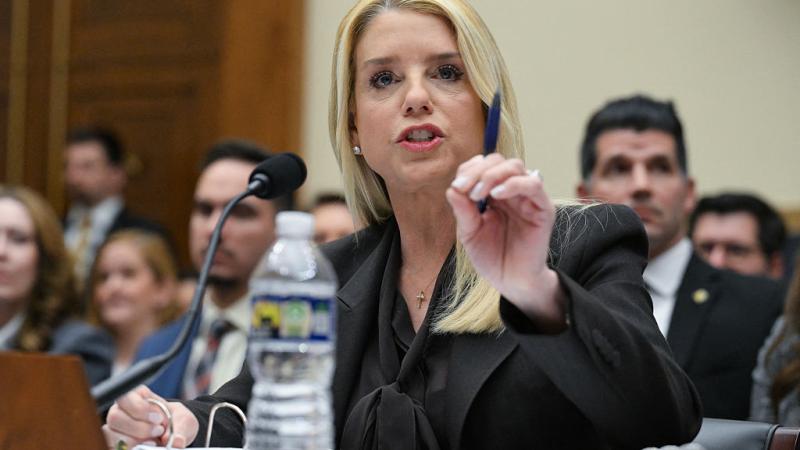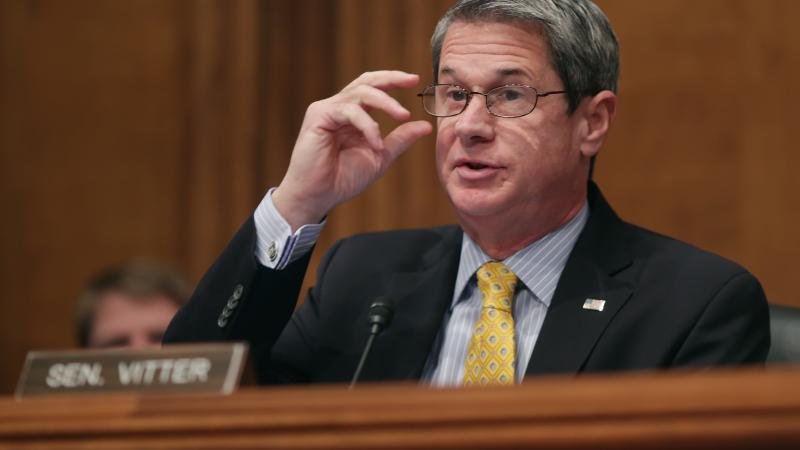Harris campaign requires I.D. to attend her rally, even though she opposes voter I.D.
“Yet, we have seen in the state of Georgia, by example, anti-voter laws, laws that have limited drop boxes and made it illegal to even provide food and water to people standing in line for hours,” Harris said. But getting into her rally required valid ID.
Vice President Kamala Harris has repeatedly espoused opposition to voter I.D. laws, yet her campaign recently required that attendees present a valid identification to RSVP for one of her rallies.
The event took place Friday at the Desert Diamond Arena near Phoenix, Ariz. Ahead of the event, the campaign distributed an email requiring attendees to RSVP and to present a government-issued I.D.
The requirement drew rebuke from conservatives online in light of Harris’s past opposition to voter I.D. laws and other election integrity measures.
“Democrat Principles In Action: Requiring a government-issued ID to vote? Racist voter suppression!!! Requiring a government-issued ID to get into a Kamala Harris rally? Perfectly reasonable,” former Arkansas Gov, Mike Huckabee wrote on X.
President Joe Biden in 2021, tapped Harris to lead the administration’s voting rights initiatives, a role in which she often criticized legislative efforts to ensure that only valid voters cast ballots.
While running for president in her first campaign, however, she espoused support for paper ballots as the best way to safeguard elections, making the remarks in the context of Russian interference in the 2016 election.
“We have proposed that part of the investment in infrastructure has to be upgrading the infrastructure of states around elections,” she said in 2019. “Because, guess what? As it turns out, for all that technology has brought us, good and bad, the best and most secure way to conduct elections? Paper ballots.”
“‘Cause, the way that I say it, kind of half-joking, ‘Russia can’t hack a piece of paper,’” she added.
While on the campaign trail as Biden’s running mate, Harris maligned "suppressive voter ID laws, racial gerrymandering, voter roll purges, precinct closures and reduced early-voting days”, contending that those measures had been “laser-targeted toward communities of color,” according to Fox.
Since her appointment from Biden, moreover, Harris has heavily scrutinized state-level efforts to limit mail-in voting and to otherwise verify the legitimacy of a ballot or voter. Georgia, in particular, fell into her crosshairs.
When the law was passed in 2021, Harris derided it as a “renewed attempt to suppress the ability of people to vote” in an interview with the Atlanta Journal-Constitution.
More recently in January, Harris met with voting rights advocates in Atlanta, Ga., during which she advocated for the John Lewis Voting Rights Advancement Act, a proposed expansion of federal voting rights protections that ultimately did not become law.
While there, she pointed to what the White House called a “full-on assault on the freedom to vote” from “extremists,” referring to Republican-driven efforts to secure Georgia elections driven, in part, by Trump’s criticisms of alleged irregularities.
“Yet, we have seen in the state of Georgia, by example, anti-voter laws, laws that have limited drop boxes and made it illegal to even provide food and water to people standing in line for hours,” Harris said, according to the Georgia Recorder.
Georgia was one of several states that featured heavily in former President Donald Trump’s claims that mass election fraud affected the outcome of the 2020 presidential election.
The formerly deep-red state broke for a Democrat at the presidential election for the first time since 1992, when it backed Bill Clinton. The narrow margin of Biden’s victory drew considerable attention to alleged irregularities in Fulton County, which includes most of Atlanta. District Attorney Fani Willis further drove news cycles with her subsequent case against Trump.
In the wake of the election dispute, the legislature passed major election security overhauls, which quickly became the target of left-wing voting rights advocates over claims of discrimination.
The Stacey Abrams-led Fair Fight Inc., for instance, spearheaded a legal challenge to the state’s election measures, though U.S. District Judge Steve C. Jones, an Obama appointee, sided with the Peach State in September 2022.
"Although Georgia’s election system is not perfect, the challenged practices violate neither the constitution nor the VRA [Voting Rights Act]," he wrote at the time.
The state’s 2021 Election Integrity Act, moreover, survived additional legal scrutiny when U.S. District Judge J.P. Boulee ruled in October of last year shut down a request from the federal Department of Justice to block the bill’s regulations on ballot drop boxes, the requirement of voter I.D. for absentee ballots, and the line warming ban. Line warming is the practice of providing food and water to voters while they wait to vote.
Boulee specifically took issue with claims that "black voters wait in longer lines at a meaningfully higher rate than white voters” and that ballot drop box regulations would have a “disparate impact on black voters.”
Just the News has sought comment from the Harris campaign.
Ben Whedon is an editor and reporter for Just the News. Follow him on X.















